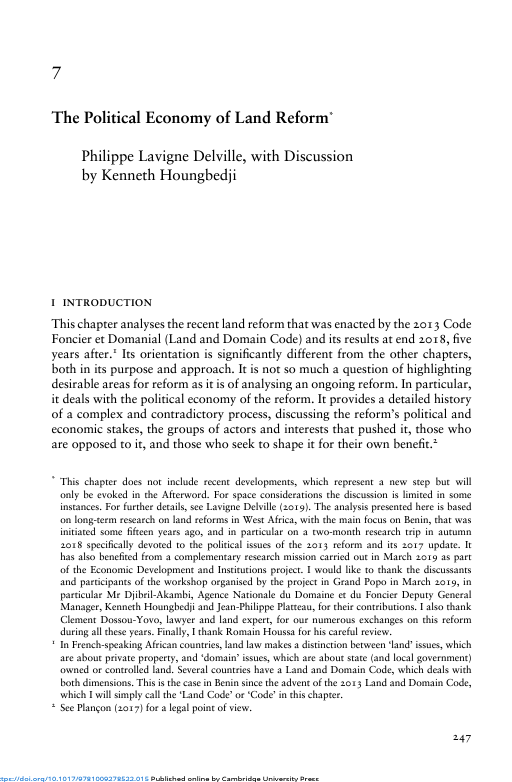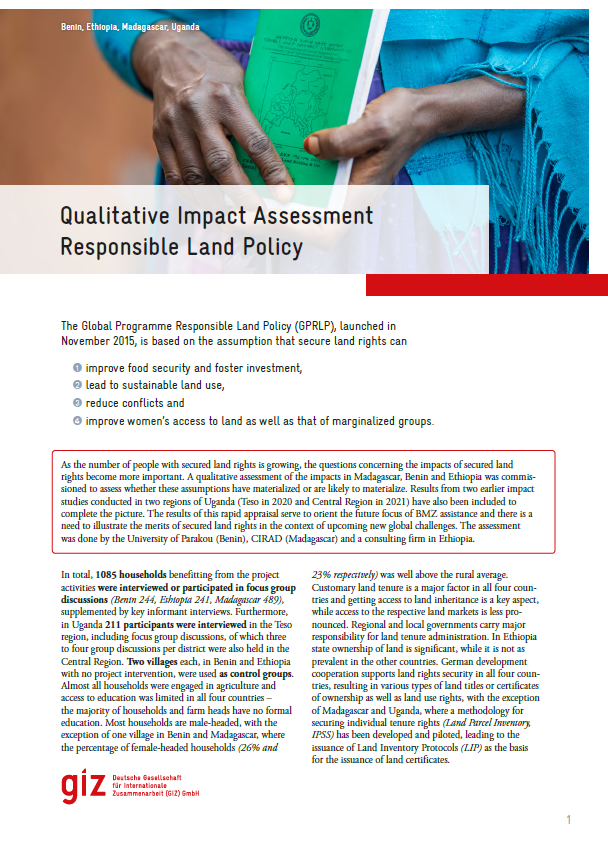The Political Economy of Land Reform
This chapter traces the complex trajectory of land tenure reforms in Benin since the democratic transition and liberalisation of the economy in the early 1990s. It shows that conceptions of the problem of land tenure insecurity and the responses to it have often clashed. Attention paid to sectors (rural vs urban) has varied as well as the timing and the nature of land tenure reforms.












